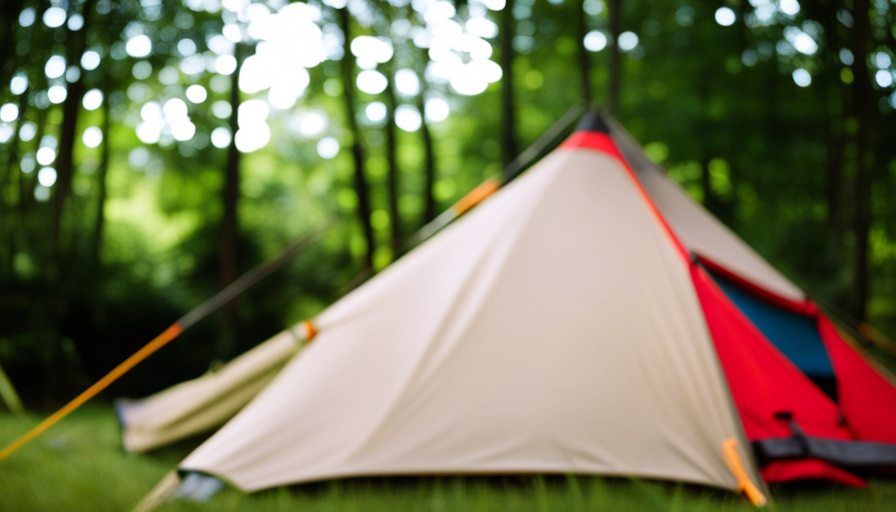Camping is an excellent way to escape the hustle and bustle of city life and get closer to nature. Whether you’re a seasoned camper or new to the experience, investing in a good quality tent is essential to ensure a comfortable and enjoyable trip. However, owning a tent also comes with the responsibility of maintaining and caring for it properly.
Neglecting tent care can lead to damage, mold, and costly repairs, ultimately shortening the lifespan of your tent. To help you get the most out of your investment, we’ve compiled 16 easy tips for maximizing your tent’s lifespan. These tips cover basic tent care, such as keeping the tent clean and dry, as well as specific care tips, such as avoiding sharp objects and using a groundsheet.
With our expert advice, you can ensure that your tent remains in good condition for many years to come, providing you with countless camping adventures.
Tent Care Basics
Basic tent care is essential to maximize the lifespan of your tent. Paying attention during use and packing down the tent properly can help prevent damage to the fabric, zippers, and poles.
Leaving boots outside the tent is also crucial to avoid punctures and degradation of the groundsheet. Additionally, using a footprint or tarp can provide added protection and prevent excess water from seeping into the tent.
Another important aspect of tent care is to avoid leaving pets unsupervised in the tent and storing food and toiletries in a closed container outside the tent. This can prevent damage to the tent and keep unwanted animals away.
Regularly cleaning and air-drying the tent is also crucial to avoid mold growth. Checking and repairing waterproofing, particularly around the seams, is also recommended to ensure the tent remains dry during rainy weather.
By following these basic tent care practices, you can extend the lifespan of your tent and save money in the long run.
Specific Care Tips
To ensure the longevity of your tent, it is imperative to take precautions such as leaving footwear outside the tent to avoid potential punctures and degradation. Additionally, using a footprint or tarp can protect the tent from excess water and damage. These simple steps can go a long way in keeping your tent in top condition for many trips to come.
Another important aspect of tent care is regularly cleaning and air-drying the tent. Mold can easily grow in damp and dirty environments, so it is crucial to keep the tent clean and dry. Checking and repairing the waterproofing, particularly around the seams, is also essential to ensure that the tent stays dry during rainy weather. By following these specific care tips, you can maximize the lifespan of your tent and save money in the long run.
| Tent Care Tips | Benefits | Considerations | ||||
|---|---|---|---|---|---|---|
| Leave footwear outside | Avoid potential punctures and degradation | Can be inconvenient in inclement weather | ||||
| Use a footprint/tarp | Protect from excess water and damage | Extra weight and bulk to pack | ||||
| Regularly clean and air-dry the tent | Avoid mold and mildew | Can be time-consuming | ||||
| Check and repair waterproofing | Stay dry during rainy weather | Can be expensive to repair | ||||
| Avoid direct sunlight | Prevent UV damage | Can be difficult to find a shaded spot | ||||
| Store in a dry, cool area | Prevent moisture buildup | Need adequate storage space | Regularly clean and maintain | Prolong the lifespan of the material | Require effort and attention to detail |
Additional Resources
Additional resources are available for those looking to further educate themselves on proper tent care techniques. These resources can provide valuable insights and tips for maximizing the lifespan of your tent.
Online videos, articles, and forums are all great places to start when looking for information on tent care. One of the most valuable resources for tent care is the manufacturer’s instructions. These instructions provide specific guidance for caring for your particular tent and can help you avoid damaging it.
Additionally, outdoor retailers such as REI often offer classes and workshops on tent care, which can be a great way to learn from experienced professionals and get hands-on experience with your own gear. By taking advantage of these additional resources, you can ensure that your tent lasts for many years of enjoyable camping trips.

